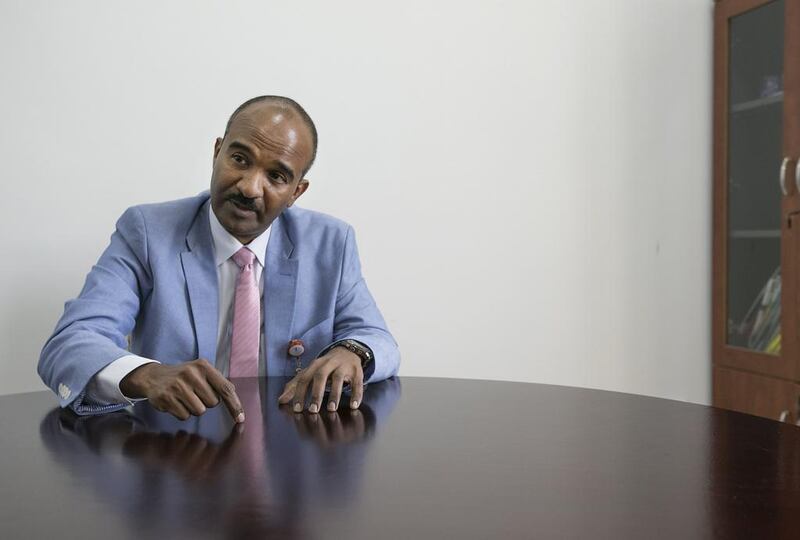ABU DHABI // Children as young as 12 years old are being treated for drug abuse at the National Rehabilitation Centre.
In addition to the adults it deals with, the centre, which was launched in 2002, treats mostly male Emirati minors between the ages of 12 and 18.
Statistics on the number of patients treated is unavailable but, according to studies from the United Nations Office of Drugs and Crime, the average age at which people start to use drugs in the Middle East has fallen to 14 from 20.
The success of the National Rehabilitation Centre has led to plans to extend its services to non-Emiratis.
The centre also collaborates with the Juvenile Welfare Centre to provide services twice a week to youngsters behind bars.
Dr Ahmed Yousef, psychiatry section manager at the centre, said he was aware of children as young as 10 using harmful substances.
“Adolescence is a sensitive age for any nation – because that is how the future of any society or nation is built, around and by young people,” he said.
“It is extremely important that good services are planned, which is what we do.
“At this age, we target prevention efforts. If we miss this crucial point in the development of the adolescent, it might be too late.”
Several factors lead teenagers to start abusing drugs, including peer pressure and the temptation to disobey.
Dr Yousef said that, in the past, only hard drugs were available in the UAE, such as heroin, but now teenagers are experimenting with “uppers, downers, all-arounders”.
“So they take something to get high initially, then to get down at the end of the night to try and sleep. And then they take something that would work all the time, different substances. Some of these substances are pretty new and dangerous,” he said.
Dr Yousef said that it was important to differentiate between the stages of substance abuse. The process begins with experimentation, which is normal at that age. That is followed by misuse and then dependence.
He said there had been a rise in the use of two or more substances at once.
The centre’s services to users starts with prevention, but Dr Yousef said all patients received a personalised treatment path.
“The patient can either be admitted to the NRC or can continue as an outpatient. We prefer to treat them in the outpatient [service] because we don’t want to institutionalise or de-skill them, as they have school, they have a life, a family,” he said.
“But if at all it is indicated medically, or there is a complication and no alternative, then we take them into the ‘detoxification process’.”
The process takes two days to two weeks, depending on each case. After that, the patients go through an intensive rehab period where their mental health is also assessed, because there are often issues resulting from drug use.
“Psychotic disorders, depression, anxiety – all of these can evolve. Vulnerability starts at this age, so when diagnosing, having the patient under observation by all the team is a luxury. You are also introducing the intervention [therapies],” he said.
Rehabilitation includes psychosocial and vocational training after six to eight weeks. Dr Yousef said vocational training focused on school studies to “fill the gaps” that having a drug habit can create.
In addition, one-on-one psychologist sessions are complemented with group therapies, to asses the motivation to change and avoid a relapse.
“[Addiction] is a cycle, which is why they relapse. Now addiction is viewed as a chronic disease, it is like diabetes, like asthma,” Dr Yousef said.
Such patients require continuous treatment to prevent relapses, with family and community support a vital factor and partner in the treatment, the doctor said.
Another part of the treatment involves two imams from Awqaf, the General Authority of Islamic Affairs and Endowments, giving daily prayers and guidance to adolescents at the centre.
aalkhoori@thenational.ae





